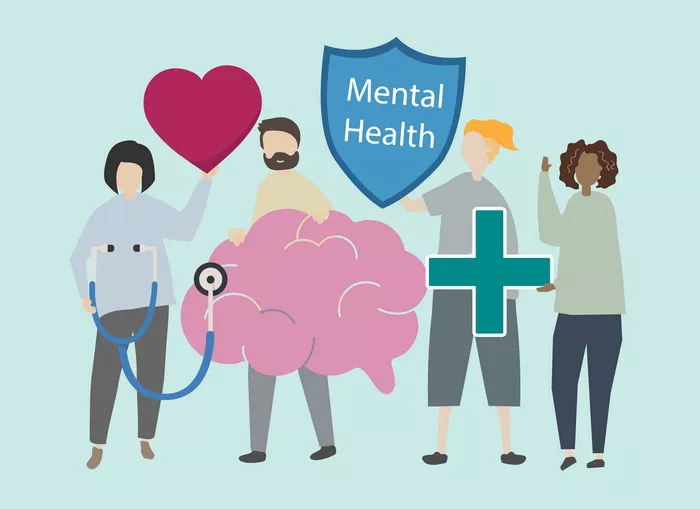In the realm of mental health, depression stands as a formidable adversary, affecting millions of individuals worldwide. As the prevalence of depression continues to rise, so does the importance of seeking effective treatment. One widely recognized and beneficial form of treatment is therapy. However, many individuals contemplating therapy are often daunted by the financial aspect. In this comprehensive exploration, we delve into the intricacies of therapy costs for depression, shedding light on various factors that influence pricing and providing valuable insights for those seeking mental health support.
Understanding Depression and the Need for Therapy
Before delving into the costs associated with therapy for depression, it is crucial to grasp the nature of the condition itself. Depression is a multifaceted mental health disorder characterized by persistent feelings of sadness, hopelessness, and a lack of interest or pleasure in daily activities. Given its impact on various aspects of life, from personal relationships to professional endeavors, seeking therapeutic intervention becomes imperative for many individuals.
Different Modalities of Therapy and Their Costs
Therapy for depression encompasses various modalities, each offering unique approaches to address the challenges presented by the condition. The cost of therapy can vary significantly based on the type of therapeutic intervention chosen. Common therapeutic modalities include:
Cognitive-Behavioral Therapy (CBT): CBT is a widely used and evidence-based form of therapy that focuses on identifying and changing negative thought patterns and behaviors. Sessions can range in duration, typically lasting 45 to 60 minutes.
Psychodynamic Therapy: Rooted in psychoanalytic principles, psychodynamic therapy explores unconscious processes and unresolved conflicts that may contribute to depression. Sessions may be longer compared to CBT, often lasting 60 to 90 minutes.
Interpersonal Therapy (IPT): IPT targets interpersonal issues that contribute to depression, emphasizing the importance of improving communication and relationships. Session lengths are similar to CBT, typically lasting 45 to 60 minutes.
Dialectical Behavior Therapy (DBT): Initially developed for individuals with borderline personality disorder, DBT incorporates mindfulness and acceptance strategies. Sessions can range from 60 to 90 minutes.
Group Therapy: In this modality, individuals with depression participate in sessions led by a trained therapist. Group therapy can be a cost-effective option, with session durations varying based on the group size.
Understanding the nuances of these therapeutic modalities is essential when considering the associated costs, as the duration and intensity of sessions can influence the overall financial commitment.
Factors Influencing Therapy Costs
Several factors contribute to the overall cost of therapy for depression. It is crucial to consider these elements when evaluating the financial aspects of seeking mental health support:
Therapist Qualifications and Experience: The qualifications and experience of a therapist can significantly impact their hourly rates. Licensed psychologists or psychiatrists often charge higher fees compared to counselors or social workers.
Location: The geographical location of a therapy practice plays a pivotal role in determining costs. Urban areas tend to have higher living and operational expenses, translating to higher therapy fees.
Session Duration and Frequency: The length and frequency of therapy sessions directly influence costs. Longer or more frequent sessions may result in higher overall expenses.
Therapeutic Approach: Different therapeutic modalities have varying costs. Specialized approaches or therapies may come with higher fees due to the expertise required.
Insurance Coverage: Insurance coverage for mental health services can vary widely. Some plans provide comprehensive coverage for therapy, while others may offer limited benefits. Understanding insurance policies is crucial for managing costs effectively.
Therapeutic Setting: The setting in which therapy takes place can impact costs. Private practices, clinics, and hospital-based settings may have different fee structures.
Sliding Scale Options: Some therapists offer sliding scale fees based on the client’s financial situation. This can make therapy more accessible for individuals with limited financial resources.
Understanding these factors empowers individuals to make informed decisions regarding therapy for depression, aligning treatment options with their financial capabilities and preferences.
Average Costs of Therapy for Depression
While the costs of therapy can vary widely, it is helpful to explore average figures to provide a general understanding of what to expect. In the United States, where mental health services are often privatized, therapy costs can range from $75 to $200 per session for licensed counselors or social workers. Psychologists and psychiatrists may charge higher rates, ranging from $150 to $300 or more per session.
Factors such as location, therapist qualifications, and therapeutic approach contribute to this variability. Additionally, the duration and frequency of sessions can impact the overall cost of therapy. It is important to note that these figures are approximate, and actual costs may differ based on individual circumstances and preferences.
Insurance Coverage and Mental Health Parity
The financial burden of therapy for depression can be alleviated through insurance coverage. Mental health parity laws in many countries, including the United States, mandate that insurance plans offer equal coverage for mental health services compared to physical health services. Understanding insurance benefits and seeking providers within the network can contribute to more affordable mental health care.
However, it is crucial to be aware of potential limitations, such as copayments, deductibles, and restrictions on the number of covered sessions. Additionally, not all therapists accept insurance, requiring individuals to pay out-of-pocket and seek reimbursement from their insurance providers.
Sliding Scale Options and Low-Cost Mental Health Services
Recognizing the financial challenges many individuals face, some therapists offer sliding scale fees based on income. Sliding scale options aim to make therapy more accessible for those with limited financial resources, ensuring that the cost of therapy does not become a barrier to seeking help.
In addition to sliding scale options, low-cost mental health services are available through community clinics, university counseling centers, and nonprofit organizations. These services often provide therapy at reduced rates or on a sliding scale, making mental health support more affordable for a broader range of individuals.
Online Therapy and Its Cost Dynamics
The advent of technology has brought about significant changes in the delivery of mental health services, with online therapy emerging as a viable and convenient option. Online therapy platforms connect individuals with licensed therapists through video calls, messaging, or phone calls.
The costs of online therapy can vary, but they often present a more affordable alternative to traditional in-person sessions. Online therapy may offer subscription-based models, where individuals pay a fixed monthly fee for a certain number of sessions. Additionally, some platforms provide sliding scale options to accommodate different financial situations.
While online therapy may not be suitable for everyone, it provides a valuable option for those seeking cost-effective and flexible mental health support.
Navigating Financial Barriers to Therapy
Despite the importance of mental health care, financial barriers can hinder individuals from accessing therapy for depression. To overcome these challenges, consider the following strategies:
Explore Low-Cost Options: Research low-cost mental health services, community clinics, and nonprofit organizations in your area. These resources may offer affordable therapy options or sliding scale fees.
Inquire About Sliding Scale Fees: If you have identified a therapist you would like to work with, inquire about sliding scale fees based on your financial situation. Many therapists are willing to adjust their fees to accommodate clients with limited financial resources.
Check Insurance Coverage: Understand your insurance coverage for mental health services. Contact your insurance provider to inquire about copayments, deductibles, and the number of covered sessions. Choose therapists within your network to maximize insurance benefits.
Consider Online Therapy Platforms: Explore online therapy platforms that offer cost-effective options. Online therapy can provide flexibility and affordability, making mental health support more accessible.
Utilize Employee Assistance Programs (EAPs): Some employers offer Employee Assistance Programs that provide confidential counseling services to employees. EAPs may cover a certain number of therapy sessions, alleviating the financial burden.
Seek Support from Nonprofit Organizations: Reach out to nonprofit organizations dedicated to mental health support. These organizations may offer resources, information, and assistance in finding affordable therapy options.
Prioritize Self-Help Resources: While not a substitute for therapy, self-help resources, such as books, apps, and online forums, can complement your mental health journey. Explore these resources as a cost-effective way to enhance your well-being.
Conclusion
In the pursuit of mental health and well-being, the cost of therapy for depression should not be a prohibitive factor. Understanding the various elements that influence therapy costs, exploring affordable options, and leveraging available resources can help individuals overcome financial barriers to access the support they need.
As society continues to recognize the importance of mental health, efforts to make therapy more accessible and affordable are gaining momentum. By navigating the financial landscape of mental health care with knowledge and awareness, individuals can embark on a transformative journey towards healing and resilience. Remember, investing in mental health is an investment in a healthier and more fulfilling life.
[inline_related_posts title=”You Might Be Interested In” title_align=”left” style=”list” number=”6″ align=”none” ids=”2494,1747,1613″ by=”categories” orderby=”rand” order=”DESC” hide_thumb=”no” thumb_right=”no” views=”no” date=”yes” grid_columns=”2″ post_type=”” tax=””]

































